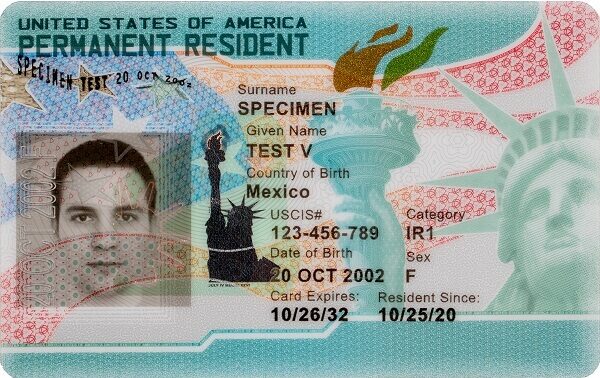Navigating immigration law can be a complex and challenging process, especially if you’re not familiar with the terminology. Here are some common immigration terms unveiled to help you better understand this complex field:
Visa:
- A visa is an official document issued by a country’s government that allows a foreign national to enter and stay in that country for a specific purpose and duration. Visas can be for tourism, work, study, or other purposes.
Green Card (United States) or Permanent Resident Card:
- A green card is a document that grants a foreign national permanent resident status in the United States, allowing them to live and work there indefinitely.
 Citizenship:
Citizenship:- Citizenship is the legal status of being a recognized member of a particular country with certain rights and responsibilities, such as the right to vote and the obligation to pay taxes.
Naturalization:
- Naturalization is the process through which a foreign national becomes a citizen of a country, typically after meeting residency requirements and passing citizenship tests and interviews.
Asylum:
- Asylum is a form of protection granted by a country to individuals who have a well-founded fear of persecution in their home country based on factors such as race, religion, nationality, political opinion, or membership in a particular social group.
Refugee:
- A refugee is a person who has fled their home country due to fear of persecution, war, violence, or other threats. Refugees are often granted protection in another country and may seek asylum.
Deportation (Removal):
- Deportation, also known as removal, is the legal process by which a foreign national is ordered to leave a country due to violations of immigration laws or other reasons.
Immigrant:
- An immigrant is a person who moves to another country with the intention of residing there permanently or on a long-term basis. Immigrants may seek permanent residency or citizenship.
Non-Immigrant:
- A non-immigrant is a person who enters another country temporarily and for a specific purpose, such as tourism, business, study, or temporary work. Non-immigrants are expected to leave the country when their visa expires.
ICE (U.S. Immigration and Customs Enforcement):
- ICE is a federal agency in the United States responsible for enforcing immigration laws, investigating immigration violations, and managing immigration detention facilities.
Consular Processing:
- Consular processing is the process by which individuals applying for U.S. visas or green cards go through interviews and document verification at U.S. consulates or embassies in their home countries.
DACA (Deferred Action for Childhood Arrivals):
- DACA is a U.S. immigration policy that allows certain undocumented individuals who arrived in the United States as children to request temporary protection from deportation and work permits.
H-1B Visa:
- An H-1B visa is a non-immigrant visa in the United States that allows U.S. employers to hire foreign workers in specialized occupations, such as technology, science, engineering, and mathematics.
I-94 Form:
- The I-94 form is a record of a foreign national’s arrival and departure in the United States. It contains important information about the individual’s visa status and authorized stay duration.
I-9 Form:
- The I-9 form is used by U.S. employers to verify the identity and employment authorization of their employees, including documenting the immigration status of foreign workers.
These are some of the common immigration terms you may encounter when dealing with immigration matters. It’s essential to seek legal advice or consult with immigration authorities for guidance on specific situations and to ensure compliance with immigration laws and regulations.



 Citizenship:
Citizenship:







